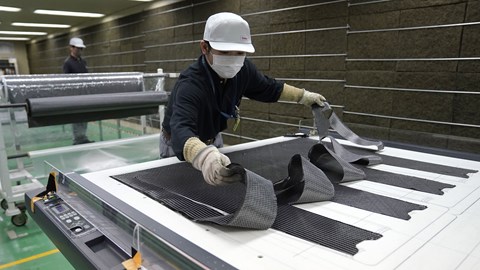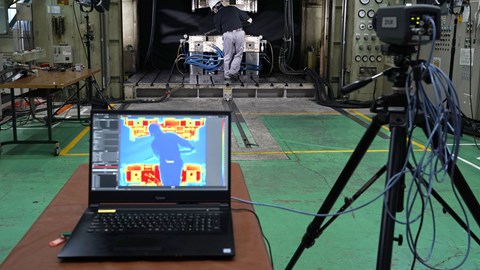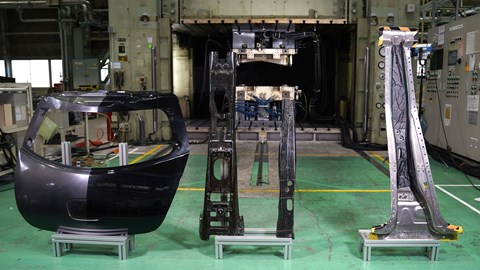► Nissan breakthrough makes carbonfibre quicker
► Could be good news for mass production
► CFRP good for performance, safety, mpg
Nissan has come up with a new process for making carbonfibre parts, which could speed up development and production, and therefore make the use of carbon more suitable for mass production vehicles.
Balancing the good and bad of carbonfibre
It’s not news that carbonfibre is great for increasing strength and reducing weight, which benefits performance, efficiency and safety. And it’s also not news that the stuff is tricky to work with, making it unfeasibly expensive for mass market application (BMW’s i3 being the exception that also proves the rule).

So Nissan’s been working on improving the compression resin transfer moulding process that’s already used to make carbonfibre reinforced plastic (CFRP). At present this involves shaping the carbon and setting it into a die, then injecting resin into the ‘slight gap’ left between the material and the top of die, leaving the resulting mixture to harden.
What’s Nissan done, then?
The innovation appears to be not so much in the process as the ability to ‘accurately simulate’ it.

Following experiments with an in-die temperature sensor and transparent resin, Nissan is apparently now able to successfully predict the permeability of the resin in the carbonfibre and the resin’s flow behaviour inside the die.
That doesn’t sound as impressive as I’d hoped
Ah, well, it perhaps doesn’t sound especially radical. But Nissan says this new capability dramatically reduces development and production time.

As a result, the lead time to develop a brand new part can be cut in half, apparently, with the cycle time for moulding falling by ‘about 80%’.
So carbonfibre Micras for everyone?
Not quite yet, but anything that makes carbonfibre more versatile surely has got to be good for the car industry in the long run…
Read our Nissan reviews on CAR